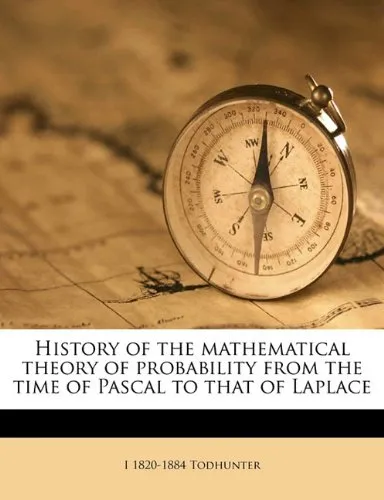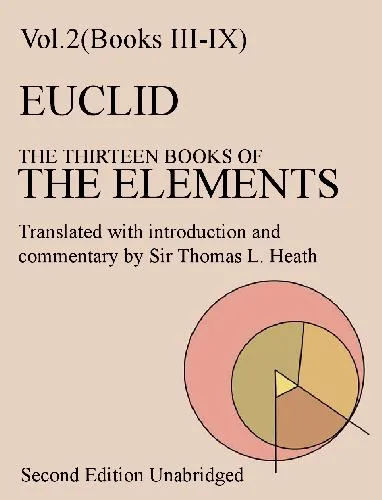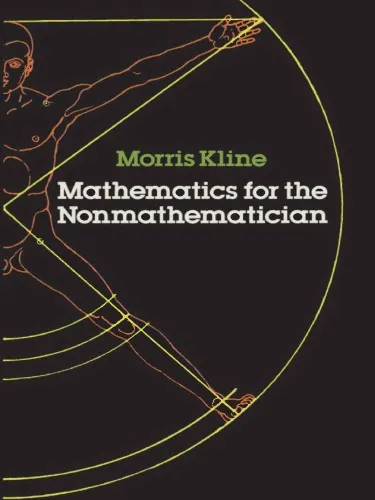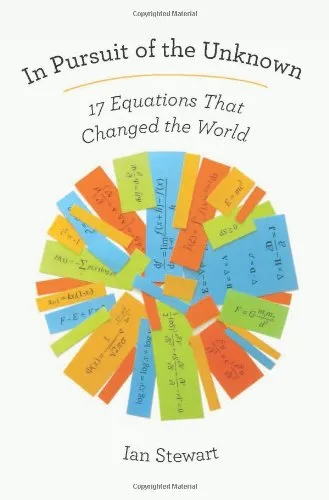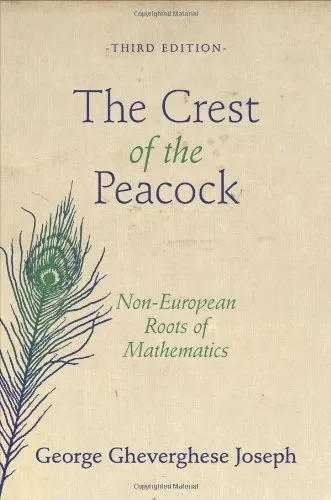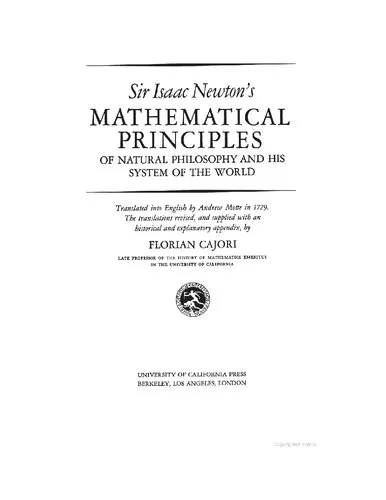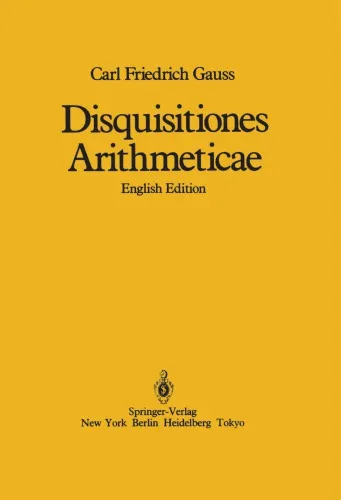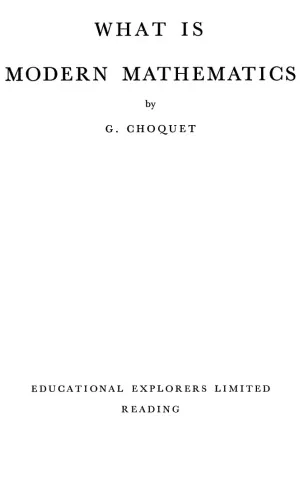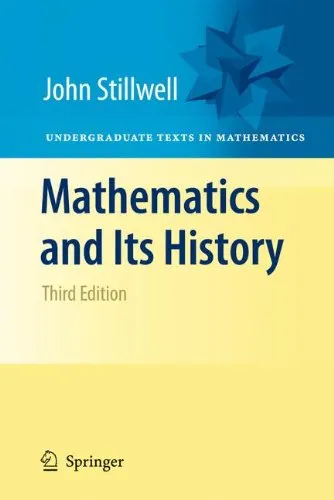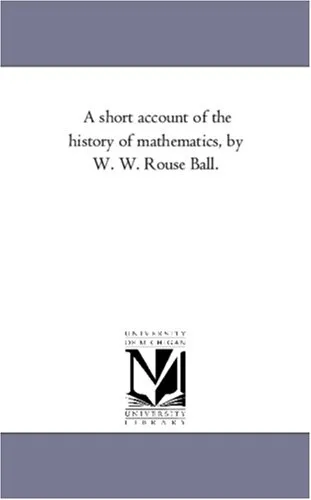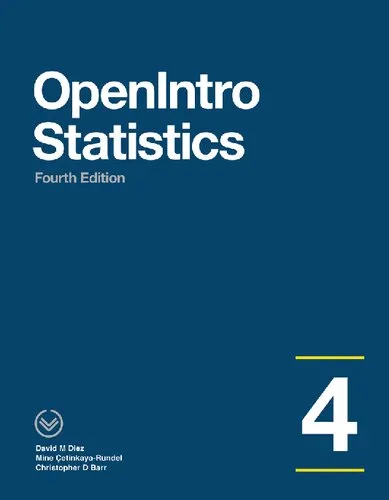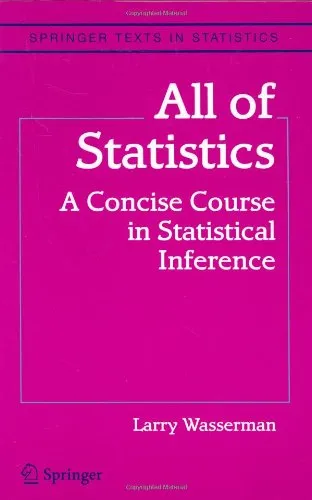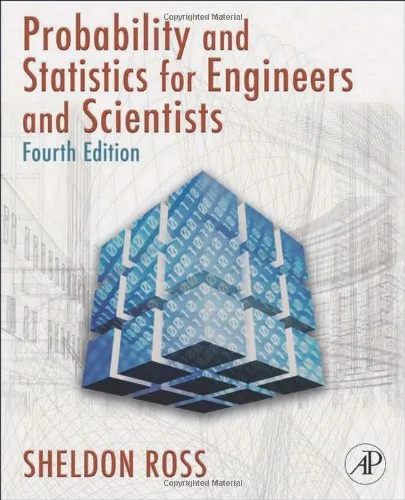A History of the mathematical theory of probability from the time of Pascal to that of Laplace
4.4
Reviews from our users

You Can Ask your questions from this book's AI after Login
Each download or ask from book AI costs 2 points. To earn more free points, please visit the Points Guide Page and complete some valuable actions.Related Refrences:
Introduction to 'A History of the Mathematical Theory of Probability from the Time of Pascal to That of Laplace'
Mathematics has always been an integral part of the intellectual foundation of human thought, and within this vast domain, probability theory serves as a bridge between pure logic and real-world uncertainties. My work, "A History of the Mathematical Theory of Probability from the Time of Pascal to That of Laplace," delves deeply into the origins and evolution of this fascinating field, offering readers an academic and historical perspective on how the fundamental concepts of probability were established, refined, and mathematically formalized.
This book chronicles the theoretical advancements made from the time of Blaise Pascal, who laid the groundwork for modern probability alongside Pierre de Fermat, to the revolutionary contributions of Pierre-Simon Laplace, whose work matured the subject and interwove it with other mathematical disciplines. By tracing this historical journey, I aim to showcase not only the growth of mathematical probability but also the pivotal roles of individual thinkers and societal influences in shaping the theory as we know it.
Detailed Summary of the Book
The book unfolds in a way that readers are guided through the gradual development of probability theory. It begins with an exploration of the 17th-century breakthroughs made by Pascal and Fermat, who addressed the famous "Problem of Points," marking the inception of systematic probabilistic thinking. Through their correspondence, we see how fundamental principles like expected value and the building blocks of combinatorics became integral tools for addressing questions of chance.
The subsequent chapters traverse the contributions of mathematicians such as Christiaan Huygens, Jacob Bernoulli, and Abraham de Moivre. Huygens' treatise on games of chance is considered the first published work on probability. Bernoulli expanded on such results, especially with his celebrated Ars Conjectandi, where he introduced the law of large numbers. De Moivre, meanwhile, addressed problems in actuarial science and introduced the bell-shaped curve, foreshadowing the normal distribution.
Central to the narrative is the monumental work of Pierre-Simon Laplace, who synthesized earlier contributions into a cohesive framework. His development of the principle of insufficient reason, his expansion of the central limit theorem, and his analytical approach to probability are explored in great depth. Laplace’s Théorie Analytique des Probabilités takes the theory to new heights and cements its necessity across domains like astronomy, physics, and social sciences.
Key Takeaways
- Probability is not merely a mathematical abstraction but a tool rooted in practical problems, from games of chance to the modeling of uncertainties in nature.
- The historical timeline of probability theory reveals the gradual amalgamation of intuition, combinatorics, and rigorous analysis.
- Histories, such as this one, highlight that mathematical progress is almost always collaborative, often involving correspondence between thinkers of different generations and nations.
- Laplace’s work unified earlier scattered contributions and introduced probability as a tool of universal application, influencing modern sciences vastly.
Famous Quotes from the Book
"Probability begins in the mind as conjecture, takes concrete shape in mathematics, and goes forth to make sense of the world’s uncertainties."
"The correspondence between Fermat and Pascal marks not only the birth of probability theory but a shift in human thought from subjective judgments to formal rules."
"Laplace, through his analytical lens, transformed our understanding of chance, creating a mathematical language that resonates across the natural and social sciences."
Why This Book Matters
This book stands as a testament to the dynamic interplay between mathematics and philosophy, demonstrating how abstract ideas can evolve into practical tools for solving real-world problems. The value of understanding the history of probability theory lies in its empowering insights—by examining how early thinkers approached uncertainty, modern readers are introduced to the creativity and rigor required for intellectual progress.
For mathematicians, philosophers, historians, and anyone captivated by the evolution of knowledge, "A History of the Mathematical Theory of Probability from the Time of Pascal to That of Laplace" offers more than just facts. It provides a narrative that connects science to humanity, reasoning to intuition, and the abstract to the practical. This subject remains profoundly relevant today, not only in its theoretical elegance but in the countless applications that permeate science, technology, economics, and beyond.
Free Direct Download
You Can Download this book after Login
Accessing books through legal platforms and public libraries not only supports the rights of authors and publishers but also contributes to the sustainability of reading culture. Before downloading, please take a moment to consider these options.
Find this book on other platforms:
WorldCat helps you find books in libraries worldwide.
See ratings, reviews, and discussions on Goodreads.
Find and buy rare or used books on AbeBooks.
1488
بازدید4.4
امتیاز0
نظر98%
رضایتReviews:
4.4
Based on 0 users review
Questions & Answers
Ask questions about this book or help others by answering
No questions yet. Be the first to ask!
